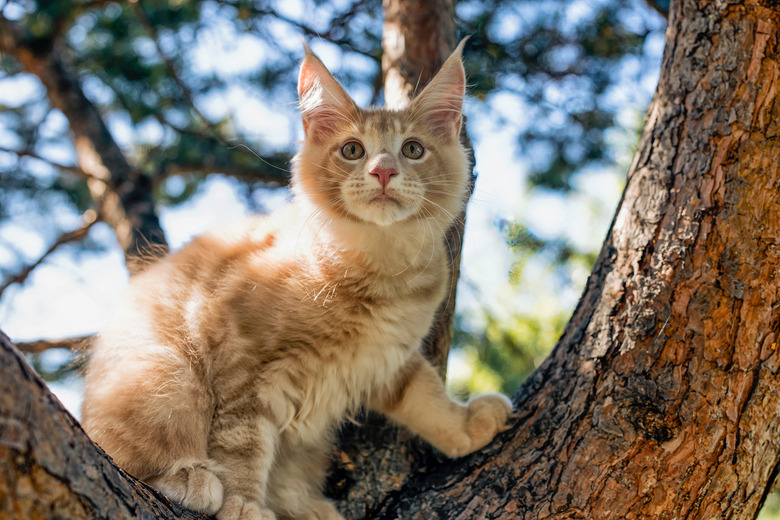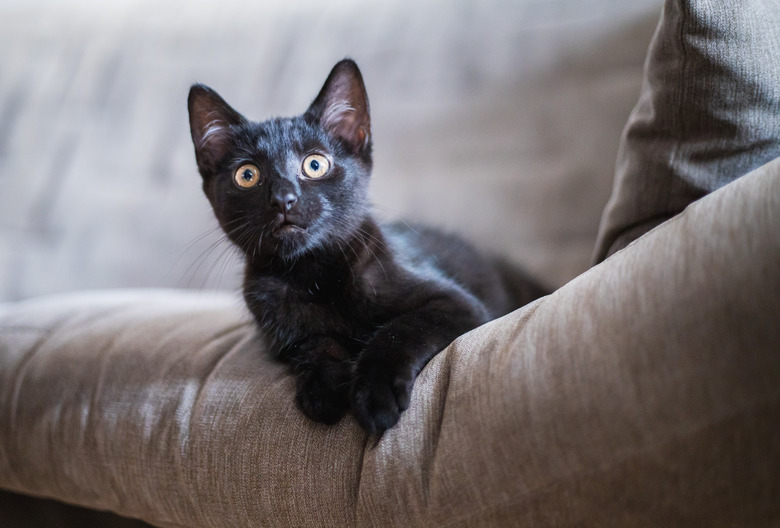What Medication Can I Use On A Cat To Heal A Cut?
Cat fights or a cat's curiosity can leave a feline with cat wounds such as scratches or cuts. If a cut is not deep and does not require suturing, you can fix your kitty up at home using some basics from the medicine cabinet, such as witch hazel, povidone iodine, or saline solution.
A word of caution: Human triple antibiotic ointment is not recommended for use on cat wounds — it can cause a serious allergic reaction.
The most popular over-the-counter medication for cat wounds is an antimicrobial treatment product. There are many available through well-known pet retailers. These treatments come in an ointment or spray formula.
Make sure kitty is calm
Make sure kitty is calm
Most cat parents want to provide cat care at home whenever possible, because trips to the vet can be upsetting or traumatic for kitties. Keeping your cat calm is the first order of business when dealing with a small wound — even just looking at the wound on an injured pet can be a challenge for many cat parents.
Using a towel or blanket and wrapping the cat in the fabric tightly, being sure to keep all four paws inside the towel is one way to keep kitty calm. Cats can be calmed by this swaddling feeling — the pressure of the towel wrap can help lower stress levels.
Another option is to have a second human hold and pet the cat behind the ears, and pay a lot of attention to the cat while you inspect the wound. This person can also hold the cat while you clean the wound or apply ointment and medication to the cut.
At all times, if the cat reacts by scratching, biting, yowling, or otherwise protesting, it's best to avoid home treatment and bring kitty to a veterinarian.
How to clean a cut
How to clean a cut
When dealing with a fresh wound, cut the hair around the wound back. This will give you a better work area and keep hair from getting inside the wound. Wet a cloth or pad and cleanse the area surrounding the wound. Flush the wound with warm water. If you can, get your cat to hold still under a running faucet. If not, place him in the bathtub and rinse his cut out by filling a cup with warm water and pouring it over the wound. Talk calmly to the cat in a soothing tone, and never scold him.
If the cut is older and scab over, clean the wound using a cotton swab dipped in hydrogen peroxide diluted with water. The ratio should be one part hydrogen peroxide to five parts water. After you have applied the peroxide-water mixture, rinse the wound with warm water and gently pat dry.
Applying medication to cat wounds
Applying medication to cat wounds
For both cats and dogs, over-the-counter triple antibiotic ointment — not the kind that is formulated for humans — works well at keeping the wound from drying out or becoming infected. Human triple antibiotic ointment can cause a serious allergic reaction for cats. Before applying the ointment, wash your hands with warm water and soap. Apply the antibiotic ointment two to four times a day. If your cat's wound is bandaged, change the bandage every time you apply the antibiotic ointment.
More cat healing tips
More cat healing tips
Do not apply hydrogen peroxide if the cut is in your cat's ears or if the cut is rather deep and will require stitches. Hydrogen peroxide does kill bacteria and is good for keeping an infection from occurring, but it also will destroy healthy tissue and can damage your cat's ear drum if applied inside the ear.
One of the best ways to avoid cats getting injured is to keep them indoors. Cats are surprisingly adaptable, and even the most outdoor-loving felines can be trained to stay indoors with minimal encouragement.
If you are in doubt about how to treat your cat's cut, contact your veterinarian.

